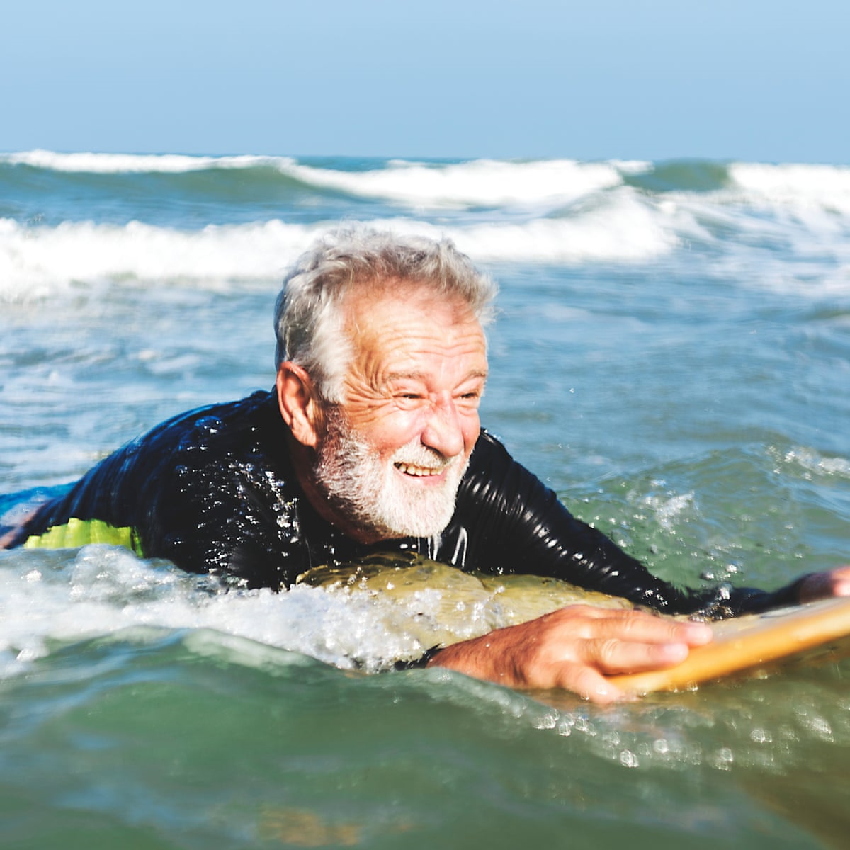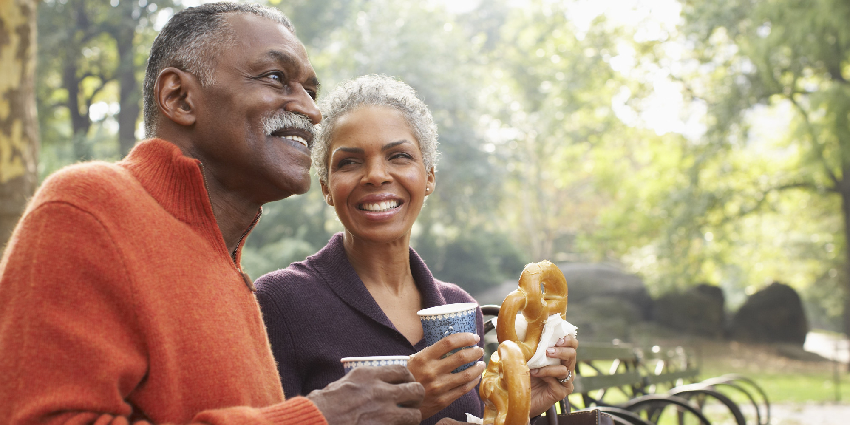In the past, the image of an inactive older adult remained, more and more seniors participate in activities that contribute to their physical and emotional well-being, with which they can live a much more active and better quality old age.
For Dr. Agustín Salazar, a geriatrician at Clínica Universidad de Los Andes, having a better old age implies “encouraging our elders to have all the tools to stay healthy and recover their health in case of illness. That they can count on a safe environment in which to lead an active life and fully integrate into society”.
Some recommendations to achieve this better old age are:

Perform physical activity
It is the most important recommendation to maintain our autonomy, improve our physical and mental health and quality of life. In addition, it reduces the risk of falls and fractures, dementia, depression, anxiety, colon cancer, diabetes, and cardiovascular diseases such as hypertension and coronary heart disease, among other benefits. We all can and must increase our activity, it is never too late. You can start by switching from a sedentary activity (eg, 30-minute TV watching) to an active one (eg, 30-minute walk).
Share with others
Keep in touch with your family, neighbors, and friends, and even with unknown people, finding spaces in your routine for social interaction. This will help you better emotional stability and create opportunities for personal growth. A good time of day to share is at mealtime.
Eat well and varied
Enjoy foods from each group, especially adequate amounts of protein to prevent muscle loss. Good sources are eggs, fortified low-fat dairy, and fish. Also, you can follow a Mediterranean diet, eat at least five servings of fruits and vegetables a day, and prefer whole grains. Avoid the consumption of products with “black labels” due to their excess in saturated fats, salt, sugars, and calories. This can reduce the risk of diabetes, colon cancer, and cardiovascular disease.
Keep learning
Enrolling in language courses, dancing, photography, painting, and learning will keep your brain active. Explore new challenges!
Do not smoke
Eliminating or reducing smoking is one of the most important tips since the damage caused by cigarette consumption is well known. Lung diseases such as cancer or chronic obstructive pulmonary disease, heart attack, and stroke are just some of the damage that smoking can cause. If it is very difficult for you to stop smoking, it is advisable to reduce the dose and leave long intervals of time without smoking.
Be careful with alcohol consumption
Ethanol can cause many health damages, especially if consumed in excess, such as cancer, liver cirrhosis, accidents, falls, among others. On the contrary, it could also be beneficial, lowering the risk of heart attack if you consume mild to moderate amounts. For this reason, we can advise you that if you don’t drink, don’t start. If you already drink, do so in moderation (maximum 1 drink a day for women and 2 for men, between 8 to 12 grams of alcohol each, equivalent to a glass of wine).
Sleep well at night
Giving importance to the quality and hours of sleep is essential for the mind and body. It is recommended to sleep between 7 and 8 hours a day, in this way you will reduce from stress to overweight. Avoid naps and bed during the day, maximum 1 time, 20 to 30 minutes.
Maintain your weight
Watch for weight gain or loss, especially if it occurs for no apparent reason. Do not “diet” and only try to lose weight under medical supervision to avoid damage to your health such as muscle loss.
Manage stress
Stress can be the cause of many physical and mental illnesses, from obesity to depression. Therefore, you have to learn to control it, either through breathing techniques or getting rid of those things that cause it.
Do not self-medicate
Avoid taking medications without medical indication to avoid adverse effects, even those that are over-the-counter (eg anti-flu) and vitamins, the latter are only recommended in case of vitamin deficiency.
Get vaccinated
Older people should receive the vaccines indicated for their age, thus protecting themselves from various viruses and infections that could have serious consequences, including death. Currently, the recommended vaccines are tetanus (in case you have not received it), flu (influenza), pneumococcal, herpes zoster, and SARS-CoV-2.




